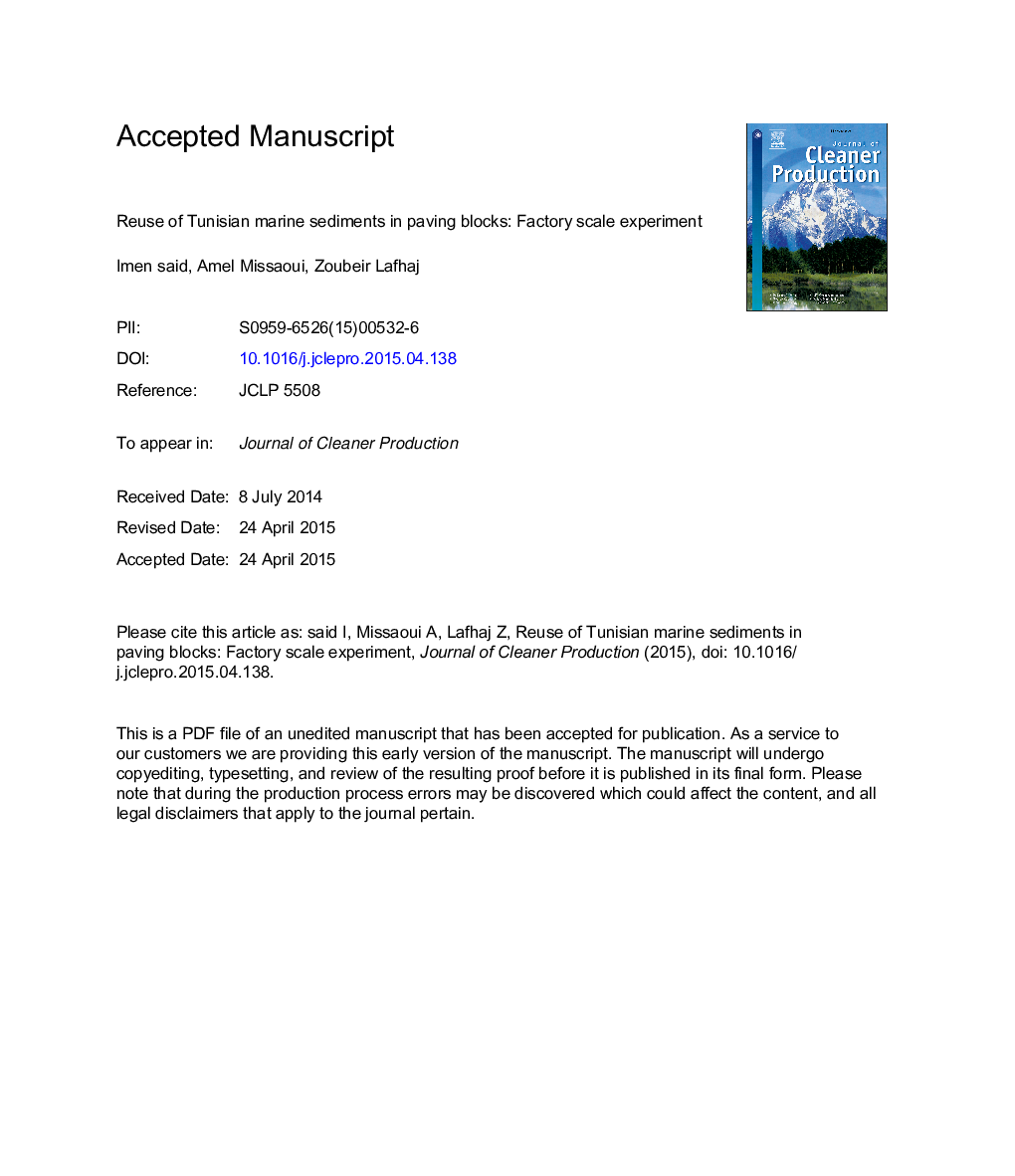| Article ID | Journal | Published Year | Pages | File Type |
|---|---|---|---|---|
| 8103766 | Journal of Cleaner Production | 2015 | 20 Pages |
Abstract
Important volumes of sediments are dredged periodically worldwide in order to maintain harbors commercial activities. Finding a new solution for managing these dredged marine sediments becomes a challenge for harbors managers. This research aims at demonstra ting the practical reuse of the Rades harbor's non polluted sediments into paving blocks production. Thus, a full-scale industrial experiment test was carried at a paving blocks factory located in the north of Tunisia. Sediments already characterized in the laboratory were introduced in the mix-design with a substitution ratio of 19% as a partial replacement of quartz sand. Approximately 300 factory sediment-amended paving blocks (FSPB) were produced. The latters were then subjected to the main qualification tests (splitting tensile strength, water absorption, leaching test). The results showed that the substitution of quartz sand by sediments gave a splitting tensile strength (3.58Â MPa) very close to the standards as well as a lower water absorption ratio (4.05%) than ordinary paving blocks. Moreover, leaching tests-results showed that the quantities of heavy metals leached from crushed paving blocks were within the regulatory limits. Thus, FSPB can be considered as non-hazardous materials. Finally, this research has led to a new use case of sediments recycling in manufacturing environment.
Related Topics
Physical Sciences and Engineering
Energy
Renewable Energy, Sustainability and the Environment
Authors
Imen Said, Amel Missaoui, Zoubeir Lafhaj,
